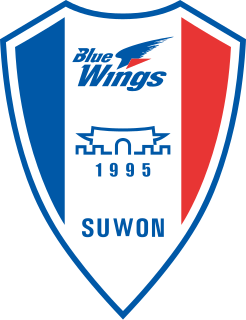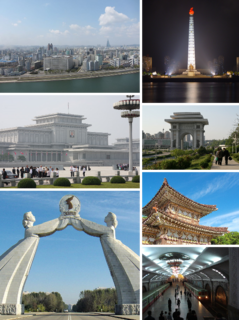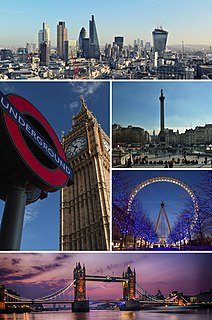
Suwon Samsung Bluewings is a South Korean football club based in Suwon, South Korea, that plays in the K League 1. Founded in December 1995, they have become one of Asian football's most famous clubs with a host of domestic and continental honours. Suwon have won the championship on four occasions, in 1998, 1999, 2004 and 2008.

Seongnam FC is a South Korean professional football club based in Seongnam, South Korea. Seongnam plays in the K League 1, the top division in South Korea. Founded as Ilhwa Chunma Football Club in 1989, the club is the most successful in South Korean football, having won a record seven K League titles, three FA Cups, three League Cups, and two AFC Champions League titles.

FC Seoul is a South Korean professional football club based in Seoul, the capital of South Korea, that plays in the K League 1. The club is owned by GS Sports, a subsidiary of GS Group.

Pohang Steelers is a South Korean professional football club based in Pohang, North Gyeongsang. They were originally called Pohang Steelworks, after the Pohang Iron and Steel Company that owned it. The club was founded in 1973 and is one of Korean football's most successful sides.

The Korean FA Cup is a national cup knockout competition involving K League 1, K League 2, National League, K3 League Advanced, K3 League Basic, and various amateur and university-level clubs, which is held annually by the Korea Football Association (KFA). Its previous format began in 1921, as the All Joseon Football Tournament (1921–1940) and became the National Football Championship (1946–2000), but the FA Cup in it present format began in 1996. The KFA merged its cup competition with the FA Cup in 2000. The winner gains entry to the Asian Champions League.
Lee Ki-Hyung is a football coach and former player from South Korea.
SK, the owners of a K-League team based in Bucheon, surprised many when, with little warning, they moved the whole club to the island of Jeju, renaming the club Jeju United FC. The club based itself in Seogwipo where it took over the vacant Jeju World Cup Stadium.
The K League All-Star Game is an annual exhibition match organised by the Korea Professional Football League. Inaugural match was held in 1991.
The 2010 Korean FA Cup, known as the Hana Bank FA Cup for sponsorship reasons, was the 15th edition of Korean FA Cup. The 2010 KFA Cup began on 6 March 2010 and ended on 24 October 2010.

Hong Chul is a South Korean football player who plays for Suwon Samsung Bluewings.
The 2011 Jeju United FC season is the clubs twenty-ninth season in the K-League. Jeju United competed in the K-League, League Cup, Korean FA Cup, and the AFC Champions League.
The 2011 Suwon Samsung Bluewings season was Suwon Samsung Bluewings's sixteenth season in the K-League in Republic of Korea. The club is competing in the K-League, League Cup, Korean FA Cup and AFC Champions League.
The 2011 season was Chunnam Dragons's seventeenth season in the K-League in South Korea. Chunnam Dragons competed in K-League, League Cup and Korean FA Cup.
The 2011 season was Seongnam Ilhwa Chunma's twenty-third season in the K-League in South Korea. Seongnam Ilhwa Chunma was competing in K-League, League Cup and Korean FA Cup.
The 2011 season was Pohang Steelers's twenty-ninth season in the K-League in South Korea. Pohang Steelers will be competing in K-League, League Cup and Korean FA Cup.
The 2011 Korean FA Cup Final was a football match played on 15 October 2011 at Tancheon Sports Complex in Seongnam that decided the winner of the 2011 season of the Korean FA Cup. The 2011 final was the culmination of the 16th season of the tournament.
The 2009 Korean FA Cup Final was a football match played on 8 November 2009 at Seongnam Stadium in Seongnam that decided the winner of the 2009 season of the Korean FA Cup. The 2009 final was the culmination of the 14th season of the tournament.
The 2013 Korean FA Cup, known as the Hana Bank FA Cup for sponsorship reasons, was the 18th edition of Korean FA Cup. It began on 10 March 2013. The cup winner were guaranteed a place in the 2014 AFC Champions League.
Hwang Ui-jo is a South Korean footballer who plays as striker for Bordeaux in the Ligue 1 and the South Korea national football team.
Kim Yong-hwan is a South Korean football full-back who plays for Incheon United and the South Korea national under-23 football team. On 10 October, 2013 when the Brazil national football team went to South Korea to train, Kim joined the training with the Brazil national football team including Neymar, Dani Alves, etc. Kim's main position is full-back but he can assimilate other positions including Wing-back and Winger. He has great speed and overlapping ability.


















